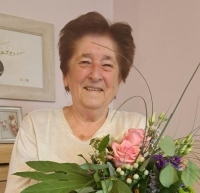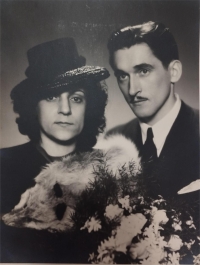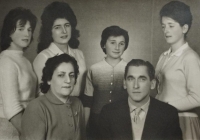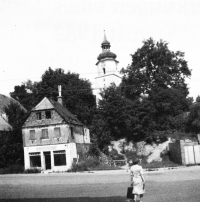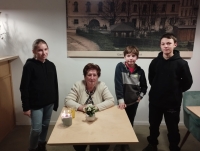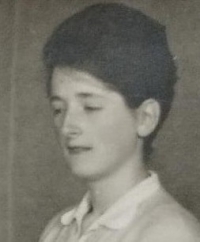Parents’ lives crossed in Magdeburg during the war

Download image
Štěpánka Počepická was born on 5 October 1944 in Magdeburg, Germany, to Greek woman Ismini Cipuris and Antonín Pospíšil, who came from Zlín. They met in Germany at a time when her father, born in 1921, was forced to work there. Her mother left occupied Greece in 1941 with her brother and they found work together in Germany. After the war, in 1946, the Pospíšils settled in Hranice in the Cheb region, where at that time both Czechs and the remaining undeported Germans lived side by side, as well as people who had settled in the border area. The witness remembers the houses that remained empty for many years, as well as the creation of a border zone in the area formerly inhabited by Trojmezí (Three-Border-Area). In Hranice she went to primary school and in Aš she continued her studies at the grammar school and later at the eleven-year school. She worked as an accountant in a glass factory, then for many years as a shop assistant. She trained in a physical education union and took part in several Spartakiads in Prague. In Hranice she lived through the invasion of the Warsaw Pact troops. She and her husband Jan Počepický raised their only son Petr. In 2024, at the time of filming, she was living in Hranice.
